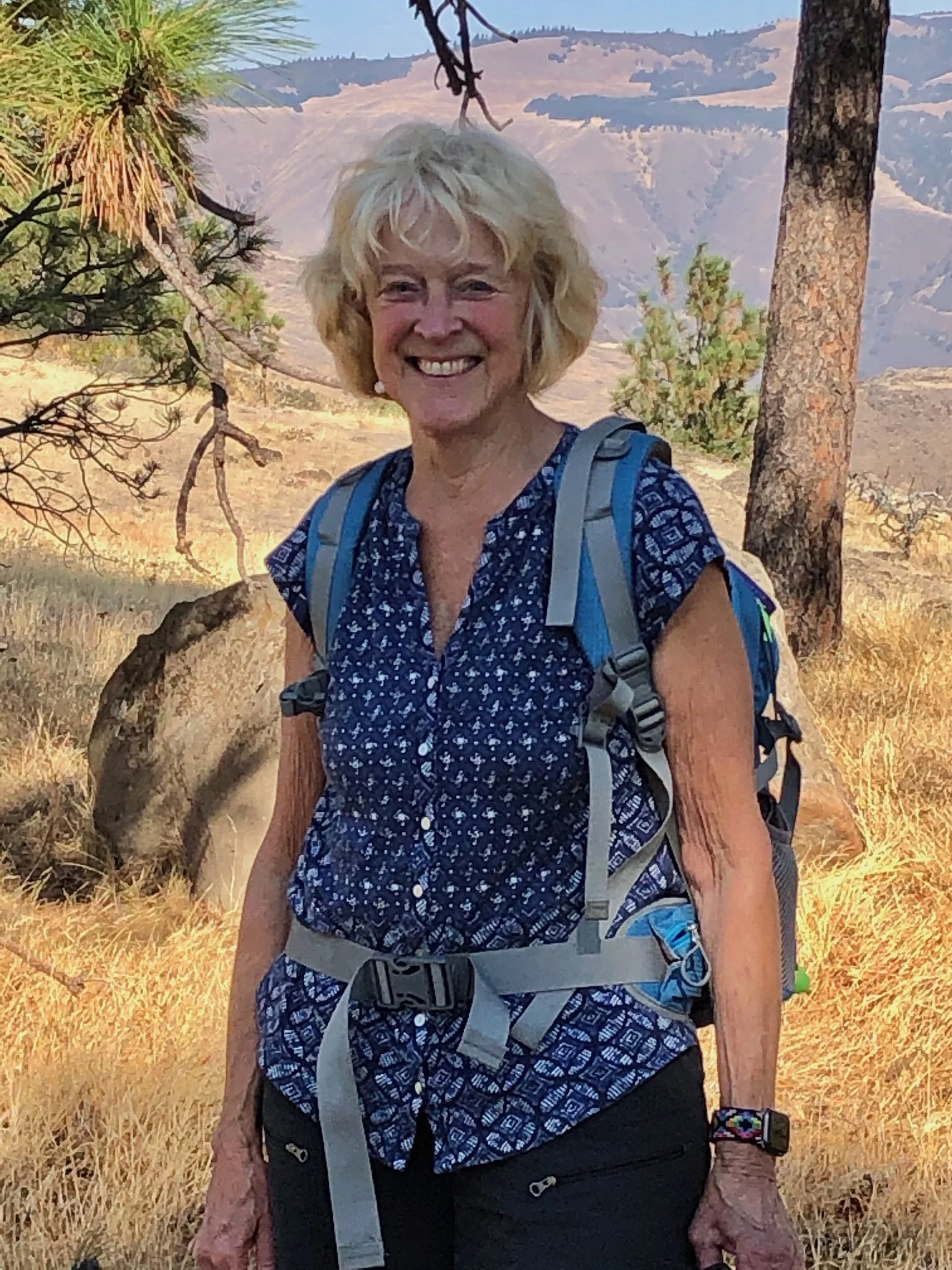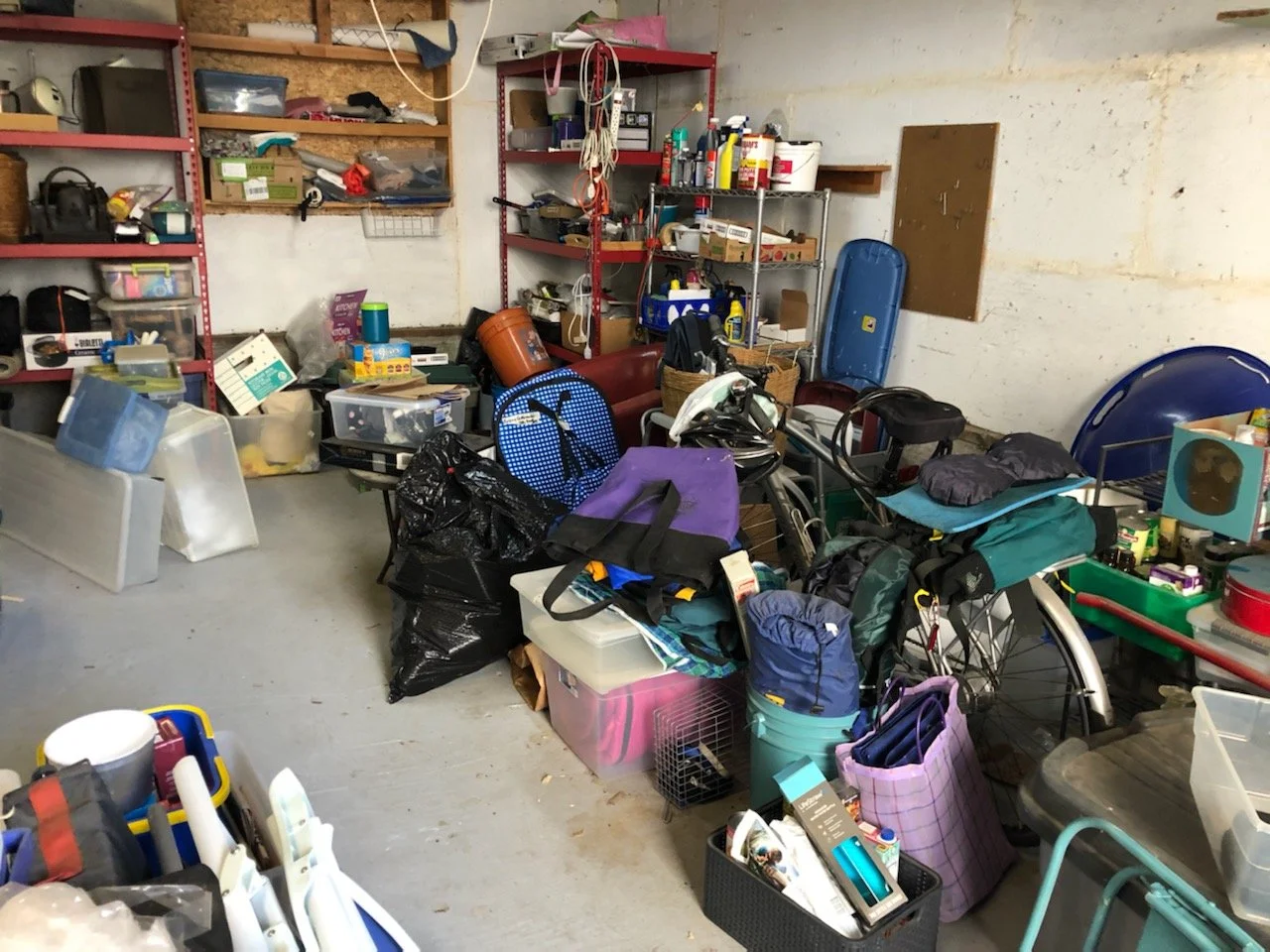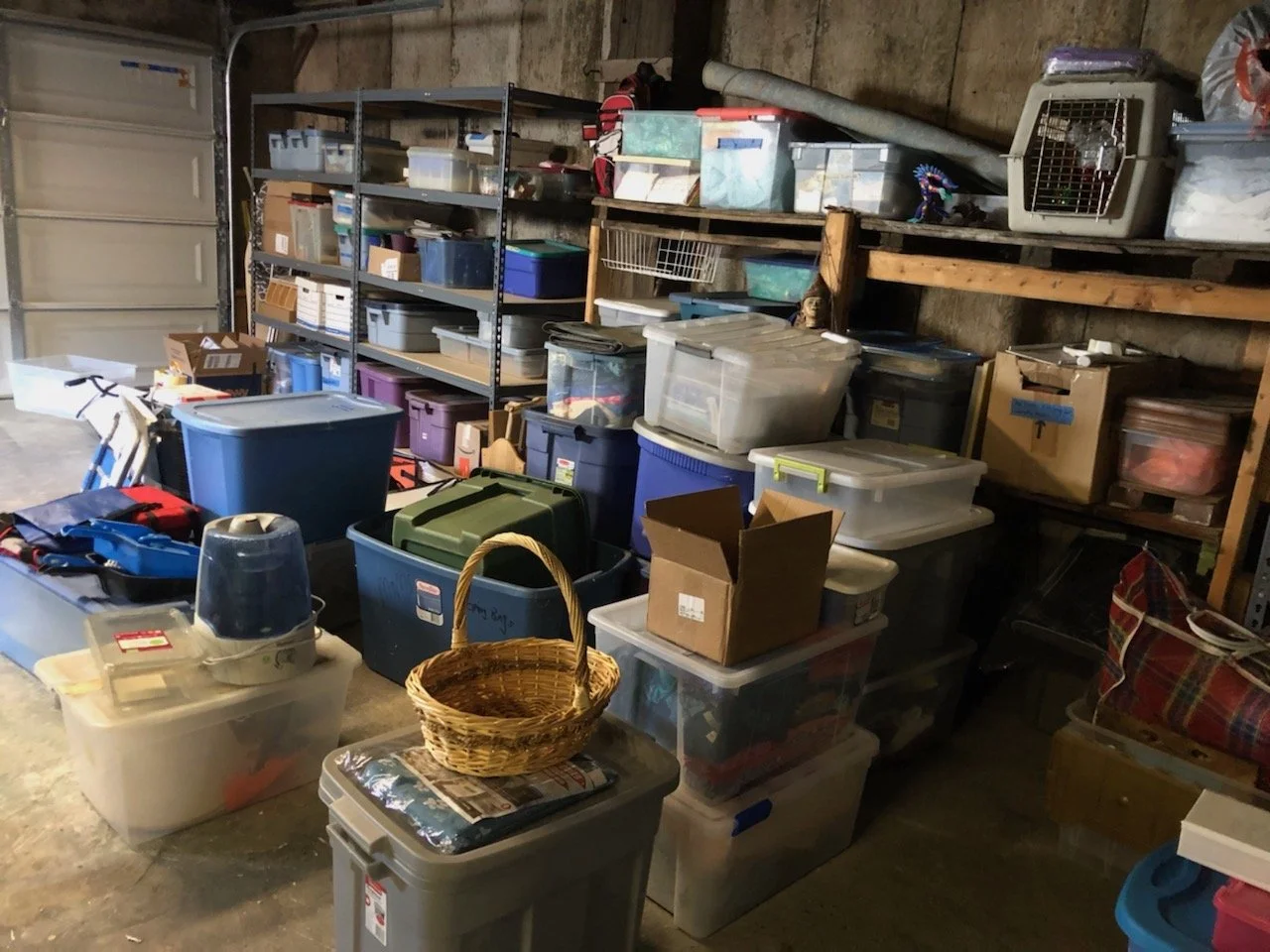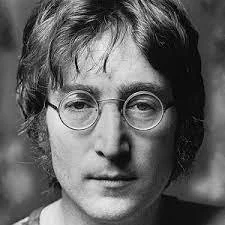Column: Are pepper shakers important when facing death in a snow storm?
What Really Matters?
Nancy Turner
By Nancy Turner
Keep it? Toss it? Slip it onto the “don't know” pile?
Now really, am I ever going to wear that pink sweater again?
As I sort through overflowing closets, bulging cupboards and overstocked shelves, everywhere there is excess. How many glass tumblers do I really need? I am never going to use my old backpack, that's for sure.
But wait.
For a second I entertain the fantasy that someday I will want to trudge into the mountains carrying forty pounds on my back. At my age? Yeah, right! I paw through bags of Christmas lights, old scarves, and a wild assortment of woolen mittens.
This is what I go through while trying to simplify my life. It's time to jettison superfluous stuff, of which I have no shortage. Is it a blessing or a curse to have a huge garage? I seem to fill whatever space I have available. I would never survive in a tiny house. The gypsy part of me would like to give it a try, but where would I put all my stuff?
On days when I feel impoverished, items land in the “keep it” category. What if I don't have enough in the future?
In the belly of the beast. Well, there is some work to do in this department.
I am basically materialistic; I don't like to think of myself this way, but when I look around it's obvious. I like to think of myself as “artistic”. I rationalize my impulse to collect things. But the fact is I like tangible objects: the rocks, wood, and fabric of life. I revel in playing with beads, paint, gourds, glass; you name it. Ethnic art collected on my travels, such as huipils from Guatemala, Tibetan thangkas, and huichol yarn paintings, all remind me of past adventures and distant spiritual practices. If you read my article in the CCCNews last December, you already know I'm a hoarder of nativity sets. If forced, I can relinquish these treasures, but if not required, I gladly hang on.
When the time comes to depart from Earth, I can't take my belongings with me, naturally. I've been near death in the past. The second time I climbed Mt. Hood, forty-five years ago, was a totally different experience. On the way down the mountain my three companions and I, all in our late twenties or early thirties, encountered a white-out so dense we could barely see our fingertips. A cloud enveloped the mountain above the tree line making everything invisible. There were no shadows or visible horizon. The white cloud appeared to merge with the snow.
We became hopelessly lost.
Dusk was approaching. In desperation, we built a snow cave using my Tupperware container as a shovel. The trick is to dig out a shelter as small as possible to conserve heat. Inside the snow cave we spread our climbing ropes on the cave's floor to provide a barrier between our bodies and the snow. I had received training in Outward Bound in wilderness survival. I knew what we needed to do.
Lying down together was the best way to preserve body heat. We stripped to our underwear and layered ourselves on top of each other. We hardly knew each other but these were dire circumstances. To lend a little entertainment, we paired up, boy-girl, boy-girl. We wrapped all our clothes around the outside of our four bodies to contain body heat. With hands shaking from the cold, we parceled out meager leftovers from lunch and shared what little water we had. We wondered if rescuers would see the blue jacket draped on an ice axe above our cave. We huddled together for the night. I hallucinated the thump-thump-thump of helicopters and the bark of rescue dogs. I clambered out the entrance to look – nothing.
We whispered about dying.
The hardest part for me was convincing one of the men not to leave our shelter. He wanted to hike to the lodge, not having a clue where it was. If you ever find yourself in a similar situation, stay sheltered. Do not get lost in the snow. That's when people die. Obviously, I made it out alive. After thirty-six hours, the fog cleared and rescuers found us. They led us back to Timberline Lodge. We were checked for frostbite. None. We were dehydrated and hungry, but otherwise okay.
In that snow cave, I felt grateful for the life I'd lived so far and, for all I cared, the stuff I owned might never have existed. Not once did I think about my bicycle or dining room chairs. The only precious thing I thought about was my family. I knew that if I died there on the mountain, at least I had provided my son with the gift of life and boundless love. One of the men was married and like me, had an infant son.
When the white-out prevented us from seeing where we were going, we thought, if we just walk downhill we'll come to the lodge. Wrong. After being rescued we studied a map of the terrain to see where we'd walked when we thought we were going in the right direction. The slope of the mountain deceived us._We had actually traversed around the mountain and passed just a few feet above the crevasse of the White River. Let's not even think about that.
These days, at my age, I don't even consider climbing a mountain.
I have other challenges, like cleaning out my closets. I believe they call it spring cleaning because the increase in day length provides the boost of energy needed for deep cleaning. Psychologists say that in turn, improves our mood, reduces stress, and increases our creativity. Donating old or unused items increases our generosity and self-esteem. We get the sense of a fresh start. Letting go of emotional attachments to objects is liberating.
I'm working on it.
I did some research. In Persian culture, spring cleaning traces back 3,000 years to a spring tradition called khaneh tekani. This translates to “shaking the house.” The Persians believed that sweeping up dust and removing clutter from one's home would prevent ill fortune in the upcoming year. In ancient Buddhist traditions, spring cleaning played a major role in purification rituals. For example, in Thailand there's a festival in April when people pour water over each other to wash away bad thoughts and behaviors. I would have drowned as a teenager with this ritual.
For now, I need to decide if I'm going to keep the flowered T-shirt I bought in Alaska, or not. How many books can I give away and not feel deprived? I feel secure today, like I own enough. More than enough. I tell myself to stop clinging to stuff. Every flower vase, pepper shaker, and doodad I allocate for the rummage store has the potential to be reused. It won't go to the landfill. Each person who buys one of my used objects avoids having to purchase it new. Recycling saves natural resources. I have the sense that in my own little way I am contributing to the well-being of our world, like a small stream feeds a big river. My contribution is small, but if we all reuse what we can, the smalls add up.
That’s better; a calm invaded my garage. Deep cleaning, psychologists say improves our mood, reduces stress, and increases our creativity. And you know what, if you're not using it, give it to somebody who will.
As toddlers, we go through a stage when “mine” is fierce. Everything is mine! Clinging is intense and appears natural. What's mine is mine and what's yours is mine. Can you imagine what it would be like to enter a stage of development in which “yours” or “ours” is used with such fervor? John Lennon did. He imagined we'd all live as one. I miss that guy.
Let it go, I say to myself.
Support Local News
Available to all; Funded by Readers.
Unused jackets, neglected knitting needles and too-abundant coffee mugs join the tributaries of used clothing, books, and blankets.
Somewhere downstream these things will be useful, and the ripple of benefit from my giveaway will flow on forever. It's not easy, I assure you, but it's worth the effort. Besides, I might want to buy that thing you just dropped off at St Vincent's.





